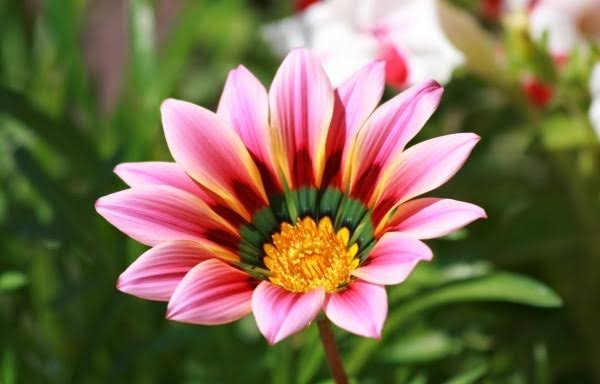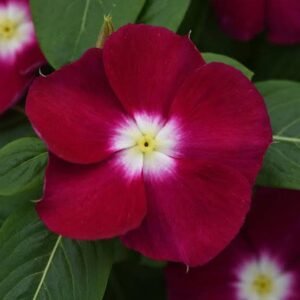Gazania is a warm-weather perennial with large composite flowers in vibrant shades of yellow and orange. Because of its daisy-like flowerheads it is sometimes referred to as the African daisy, though other plants—especially those of the Osteospermum genus—also use that name.
With its vibrant color spectrum, this low-maintenance flower is excellent for brightening up hard-to-landscape spaces. The plant is a prolific bloomer that attracts butterflies.
Plant gazania in mid- or late spring when the soil has warmed. They’ll bloom about 12 weeks after planting from seed. Gazania can also be called as treasure flower and African Daisy
Plant Type is Perennial, herbaceous and mature Size 1 ft. tall, 1 ft. wide. It enjoys full sun and thrives in Sandy well-drained , acidic soil.
Flower Color Red, orange, yellow, white, pink
Gazania Care
Gazania flowers are ideal for any gardener who is looking for an eye-catching bloom that doesn’t require much maintenance. Gazania plants don’t mind the heat that radiates off the pavement, so you can include them in your sidewalk garden or alongside your driveway. Their preference for well-drained soil makes them a natural choice for a rock garden.
Plant young gazanias about one foot apart, allowing them spread properly.
Deadhead gazania flowers to extend the blooming time of the plants.
Light
Gazania flowers thrive in full sun. Morning or afternoon shade may cause the flowers to stay closed for a portion of the day and may cause the plants to grow lanky, exceeding their normal height of six to 12 inches.
Soil
Gazanias do best in sandy, well-draining soil but will tolerate many soil types and conditions. Its preferred pH is neutral (near 7.0 pH) but it will also tolerate acidic soil up to 5.8 and alkaline soil.
Water
The leathery foliage of gazania plants is a clue to the high drought tolerance of this flower. Let the soil dry out between waterings.
Temperature and Humidity
Gazanias like hot, dry conditions and work well with similarly adapted flowers, such as vinca, cosmos, verbena, or globe amaranth.
Fertilizer
In their native habitat of the rocky cliffs of South Africa, gazanias grow in soils of low fertility. Compost and supplemental fertilizer aren’t necessary.
Common Pests & Diseases
Gazanias are largely trouble-free, although overly moist soils can lead to rot. Leaf spot and powdery mildew can be a problem in humid environments. Mealybugs sometimes infest the plants.
No. Of seeds- 15-20








Reviews
There are no reviews yet.